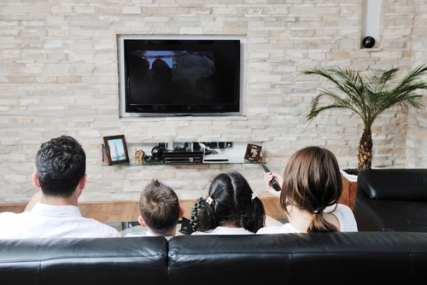Cable Technology Feature Article
Parents, Grandparents Push FCC to Keep Decency Rules
 By Steve Anderson, Contributing TMCnet Writer
By Steve Anderson, Contributing TMCnet Writer
The issue of content on television has always been a thorny one, and with good points on each side. Now, a mass of thousands of self-described parents and grandparents have moved on the FCC (News - Alert), seeking to keep decency standards in place ahead of potential changes to same.
Over 101,000 comments coming from those family members saying that the FCC's move to allow “fleeting” or “isolated” instances of nudity and profanity on networks before 10 pm shouldn't be allowed to happen. Though no one's exactly sure just how much impact the comments will have on the FCC's final decision, it's hard to deny that it's likely to have at least some impact. Indeed, several recent FCC enforcement decisions were thrown out in a Supreme Court ruling from 2012.
But many of the comments suggest that relaxed decency standards would lead to networks having a nudity and profanity arms race of sorts, with networks working to push the envelope just a little more in terms of “isolated” and “fleeting,” the kind of thing that those parents and grandparents would want to keep out of the eyes of the younger generations watching television before 10 p.m.

Image via Shutterstock
Yet the dissenting stance, represented by groups like the National Association of Broadcasters and the Radio Television Digital News Association, suggests that decency standards are relics from a bygone era, and spottily enforced, which prevents a lot of things from being aired at all lest those things invoke the ire of the FCC and lead to fines and penalties. The Writers Guild of America West also stepped in, reportedly calling FCC standards “vague and ripe for abuse” and suggesting that FCC standards amounted to little more than a “heckler's veto” over content rather than reflecting actual community standards.
To this end, perhaps there's a simple solution. With one side suggesting there should be no rules, and another side suggesting tighter before 10 pm due to the higher rates of children watching, perhaps the best approach is to take both approaches. Indeed, the one side has a point; surely television that is more likely to be viewed by young folks should be toned down. Yet at the same time, once the kids are in bed, why have rules at all? When it's only non-minors watching, surely we're all mature enough to make choices with remote control and off button; why not put strict rules in place for the early evening, and toss out the rule book for late night? Both sides are accommodated in such an arrangement, with the children protected and free speech respected. Add on to this the changes in the video market overall—especially the growth of streaming video—and it makes it especially clear that the market is a much different place than when the decency standards were written.
With each side having a point in such a discussion, finding a course of action that recognizes the relevant points and provides the best solution is a difficult path to tread. But with so much at stake—the entertainment industry is massive and creates thousands of jobs and enormous tax revenue—it's clear that a reasonable, equitable solution needs to be found, and it's on the FCC to do just that.



